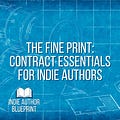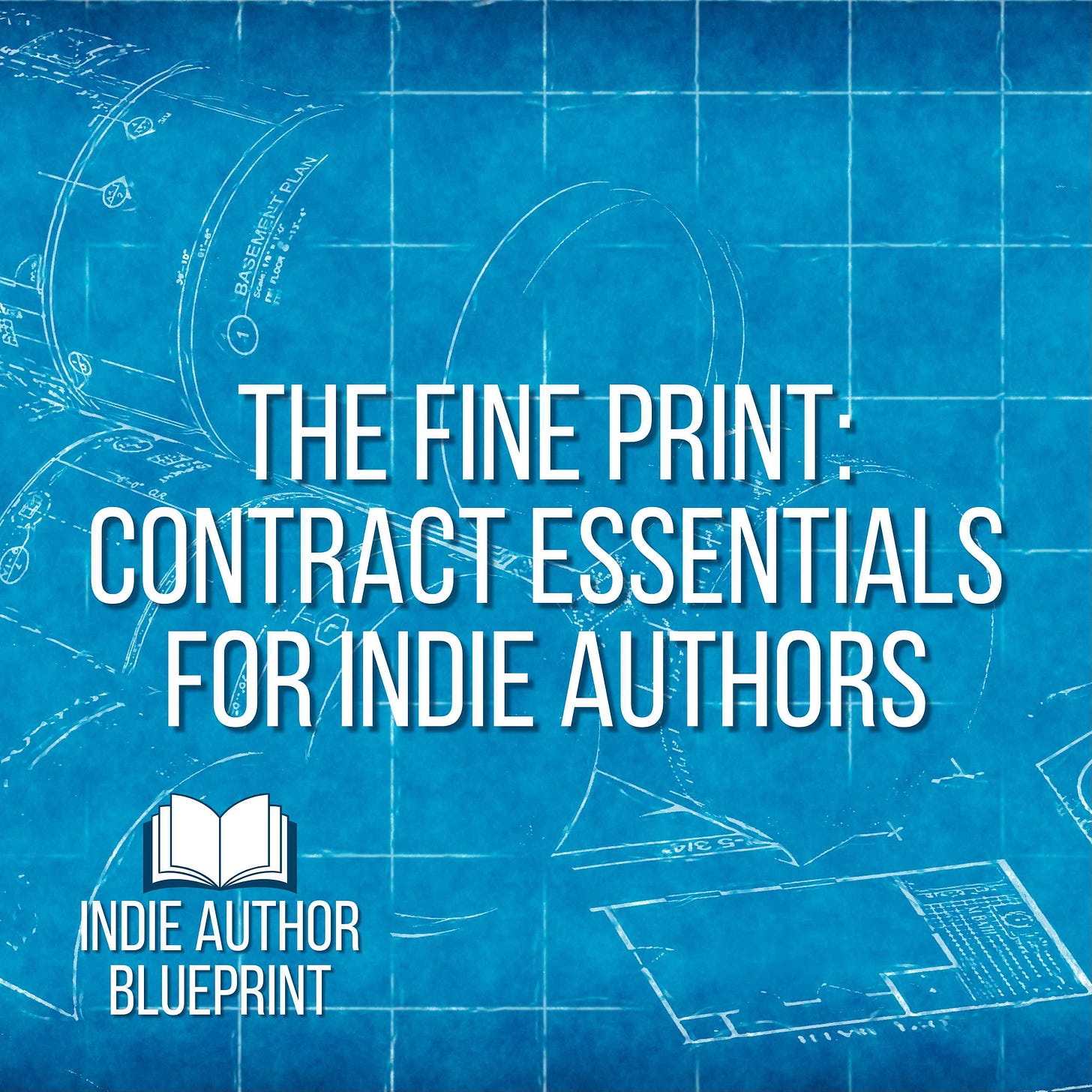In this episode, we dive into the world of contracts and what they mean for self-published authors. No, indie authors won’t sign the same kinds of contracts that traditionally published authors do, but they DO sign agreements, and it’s important to understand what they mean.
Contracts might sound intimidating, but they're essential for securing your rights and ensuring your publishing project gets done. In this episode, Michelle Rayburn guides you through the types of agreements you might encounter and the significance of understanding each one. Whether you're working with publishing platforms, distributors, or freelancers, having a grasp of the basics will give you immense peace of mind as you navigate your publishing journey.
As a bonus, paid subscribers to Indie Author Blueprint have access to a sample of the contract Michelle uses with her freelance clients.
Topics Covered
1. Introduction to Contracts
Importance of understanding contract terms.
Protection of author rights and ensuring fair compensation.
2. Differences Between Contracts for Self-Published vs. Traditionally Published Authors
Traditional publishing involves contracts with agents and publishers.
Self-publishing often lacks formal signing but includes agreements.
3. Types of Agreements for Self-Published Authors
Agreements with self-publishing platforms.
Contracts include agreements on deliverables and payments.
Digital acceptance of terms through platforms like Amazon KDP or IngramSpark.
4. Contracts for Distribution
Examples include Draft2Digital and Smashwords.
Elements like fees, royalties, exclusivity, and distribution platforms.
5. Contracts for Publicity, Marketing, Editing, and Design
Agreements for deliverables, costs, and responsibilities with hired services.
Work-for-hire contracts with freelancers or service providers.
6. Understanding and Managing Contract Terms
Importance of reading the fine print and understanding rights.
Freelancers’ rights and retention of author control over work.
7. Best Practices for Managing Contracts
Educating oneself on terms and agreements.
Utilizing industry resources like blogs, forums, and guides.
8. Seeking Professional Advice
Consulting with publishing lawyers or industry experts.
Subscription-based legal programs for affordable advice.














The Fine Print: Contract Essentials for Indie Authors